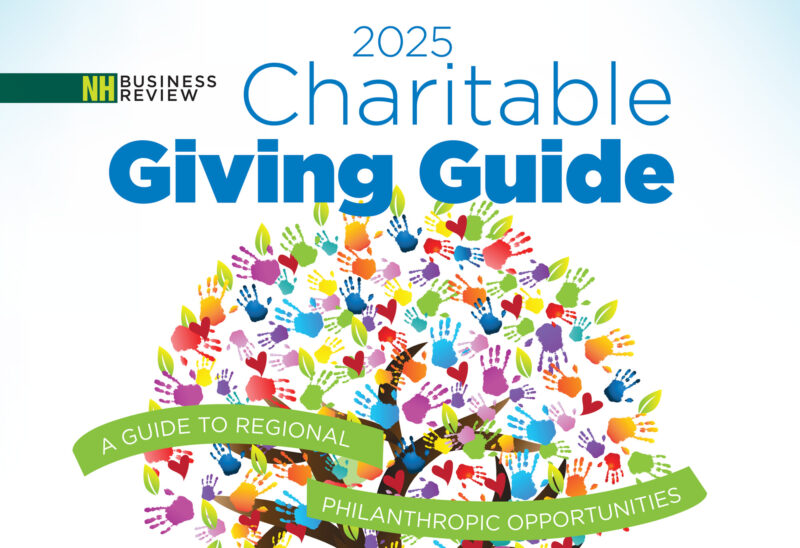Donor-advised funds are a widely-used tool in charitable planning. They allow generous people to make a tax-deductible contribution (of cash, stock or other appreciated assets) that is immediately eligible for a charitable deduction. Then, the donor can recommend grants from the fund to nonprofits doing great work, and meet community needs as they emerge.
Donor-advised funds are the most common type of fund established by donors to the New Hampshire Charitable Foundation. Foundation staff are here to partner with generous people and their advisors to share deep local knowledge of the nonprofit sector and community needs, helping people to maximize the impact of their giving.
Recently, donor-advised funds have been the subject of conversation within financial and estate planning circles, as well as a trending topic in philanthropy.
A new report on donor-advised funds
The Donor Advised Fund Research Collaborative’s recently released study of donor-advised funds reported on the many ways in which donor-advised funds are making significant contributions to nonprofits nationwide. The study sought to increase understanding of the characteristics and activity of donor-advised funds to help increase public understanding of this important charitable tool. Drawing on data from 111 sponsoring organizations which represents $40.5 billion in contributions and $31.6 billion in grant dollars, the study concluded that donor-advised funds are an effective giving tool for generous people who have a wide range of motivations and financial capacity.
As we approach the end of the year, it is also notable to see that 57% of contributions to donor-advised funds are made during the fourth quarter, while grants are made all throughout the year, providing a path for donors to make smart financial moves while being responsive to nonprofit and community needs year-round.
(Melinda Mosier, the Foundation’s vice president of donor engagement and philanthropy services, served on the advisory council for this study.)
Proposed IRS regulations on donor-advised funds
In late 2023, the IRS proposed a slate of regulations related to donor-advised funds. These proposed regulations are intended to provide additional clarity to rules set out in the Pension Protection Act of 2006, which use excise taxes to guard against potential abuses of donor-advised funds. The proposed new regulations address the definitions of “donors” and “donor advisors,” exceptions to what is considered a donor-advised fund, and guidance on what is to be considered a taxable distribution from a donor-advised fund. These proposed regulations include a provision which classifies a personal investment advisor as a ‘donor-advisor,’ which could affect the way the Foundation’s Advisor-managed investment program operates.
Hundreds of individuals and organizations offered comments to the IRS in writing last winter and at a public hearing held in early May. The Charitable Foundation submitted feedback to the national Council on Foundations on how this would affect our work. (The Council on Foundation’s official comments, which the Charitable Foundation signed, provides a deeper understanding of the proposed regulations, their possible effect on donor-advised funds, and the Council of Foundation’s key arguments.)
It is not yet clear what will happen with the proposed regulations — whether and how they will be revised or when they might become effective, if ever. The Foundation will update advisors as more information becomes available.
Bottom line: Donor-advised funds remain a wonderful tool for generous people to support great work happening in our communities, and will remain so regardless of the outcomes of these proposed regulations.
Treasury Department rules proposals and legislation
The proposed regulations discussed above don’t address all of the topics the Treasury Department has previously indicated it would issue guidance on.
- In 2017, the Treasury Department signaled intent to write more regulations around other uses of donor-advised funds, including pledges and bifurcation, the use of such funds by private foundations and the use of donor-advised-fund gifts to meet the public-support test for public charity status. Those regulations have yet to be issued or approved.
While the Treasury Department continues its rulemaking efforts, Congress could also attempt to make changes to donor-advised funds and charitable giving. (Read more here)
- In 2021, the Accelerating Charitable Efforts Act (ACE) was introduced, which would impose new payout requirements on donor-advised funds and institute new limits on the deductibility of gifts. ACE has so far failed to gain much traction. The bill was referred to the Senate Finance Committee and House Committee on Ways and Means and has yet to be taken up by those committees.
- In 2023, the Charitable Act was introduced which would allow an above-the-line deduction for charitable contributions of about $4,500 annually (double that for joint filers). This bill seemed to have bipartisan support (including from New Hampshire Senators Maggie Hassan and Jeanne Shaheen and Congressman Chris Pappas, who all co-sponsored the Senate and House bills, respectively) but has been referred to the Senate Finance Committee and House Committee on Ways and Means, and has yet to be taken up by those committees.
As you can see, rules around charitable giving strategies and tax planning are always changing. The Foundation is here as a resource to help generous people and their advisors stay informed about changes, and to help people make the most of their charitable giving.
This report was compiled by New Hampshire Charitable Foundation staff with material provided by Embolden and other sources. This article is informational and educational in nature. It is not offering professional tax, legal, or accounting advice.
For more information about how the New Hampshire Charitable Foundation can help advisors help their clients with charitable giving, please contact Michael DeCristofaro, Foundation director of advisor relations at Zvpunry.QrPevfgbsneb@aups.bet or 603-225-6641 ext. 251.















![Oluwakemi Olokunboyo of Dover received a McNabb scholarship to study nursing at Great Bay Community College [Photo by Cheryl Senter]](https://www.nhcf.org/wp-content/uploads/2024/05/Scholarship-Hero-800x548.jpg)
![Indrika Arnold, Senior Wealth Advisor, the Colony Group [Photo by Cheryl Senter]](https://www.nhcf.org/wp-content/uploads/2024/05/Indrika-Arnold-Hero-800x534.jpg)

